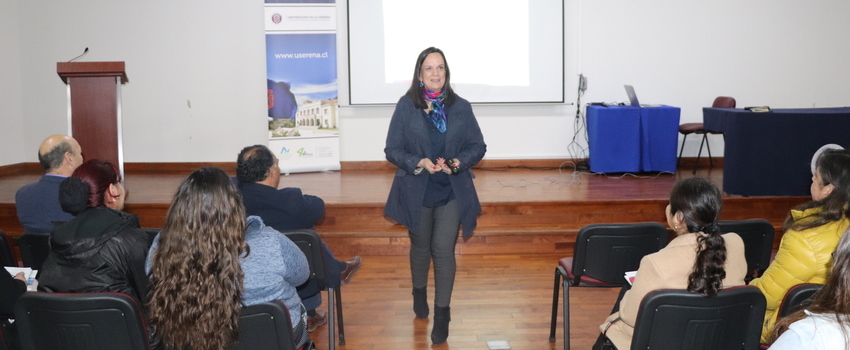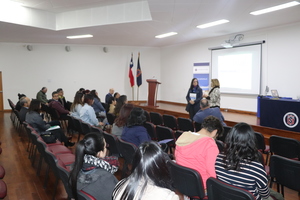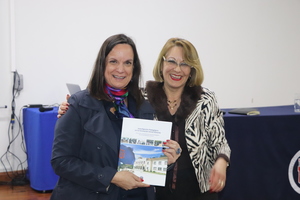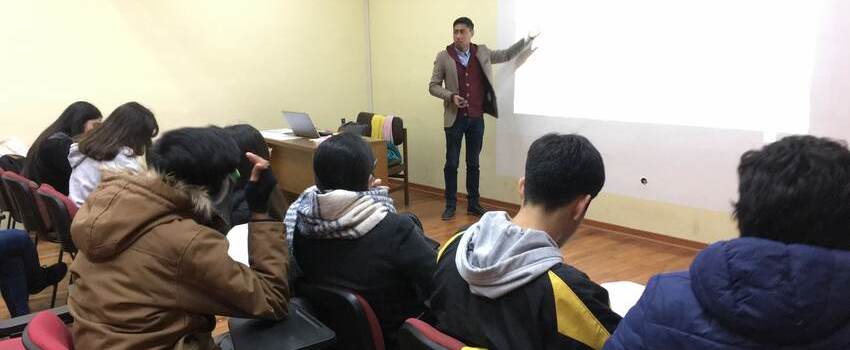
Professionals from the APRENDE and PACE ULS programs taught a workshop focused on citing a source in a written work.
Male and female students from the Civil Environmental Engineering and Civil Engineering in Mining programs at the University of La Serena participated in the APA Standard workshop, carried out by professionals from the APRENDE and PACE ULS programs.
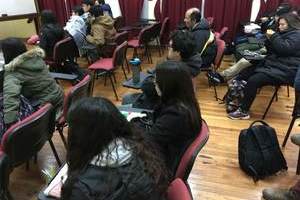 The objective of this instance was for students to be able to apply references and citations in APA or “American Psychological Association” format, in their academic works.
The objective of this instance was for students to be able to apply references and citations in APA or “American Psychological Association” format, in their academic works.
Paula Vargas, psychologist of the AES Component of the PACE ULS Accompaniment Program, explained that these norms “can be defined as a set of standards created by the American Psychological Association with the objective of grouping the way in which written works are presented at a global level. , designed particularly for degree projects or any type of research document.”
Along these lines, Mauricio Juica, psychologist of the APRENDE ULS Program, detailed the objectives of holding this workshop. “Basically, it sought to enable students to know and apply references and citations in APA format in the preparation of works, research, reports and other writings in a university context; fundamental knowledge for them.” And he added that “we hope that the students who participated in this instance know the structure of citations and references in APA format, as well as apply the format in the production of texts and differentiate the use of the APA standard according to the sources to be used. at the time of citing.”
When inquiring about holding the workshop, the professionals indicated that both the APRENDE and PACE programs are open to receiving requests to teach workshops for the four faculties of the house of higher education.
Written by Daniel Aguayo, PACE ULS Program

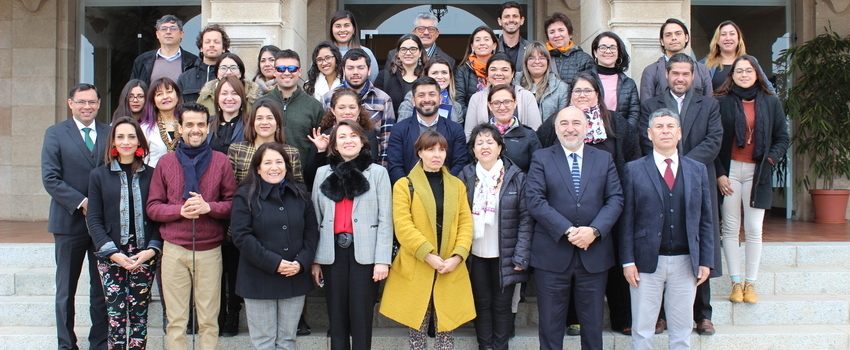
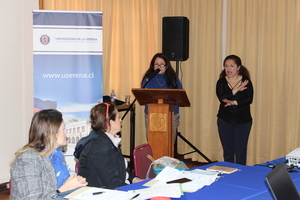
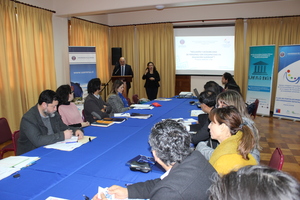
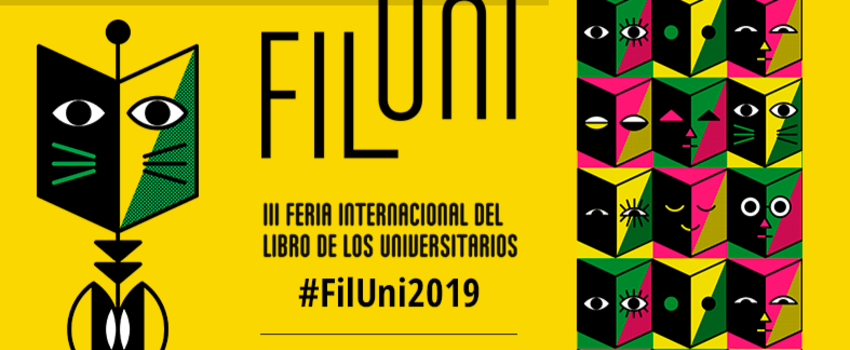
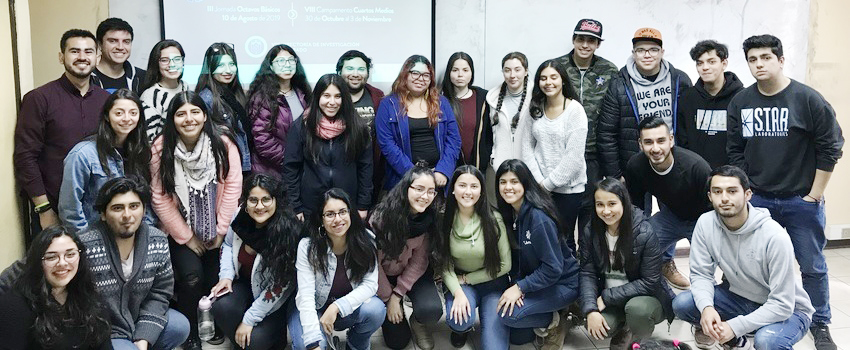
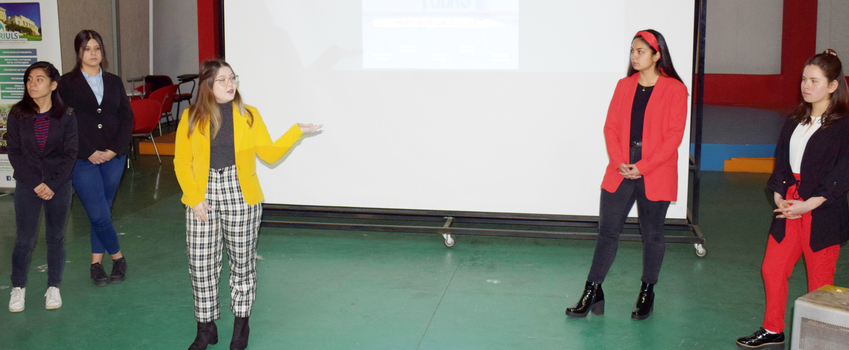
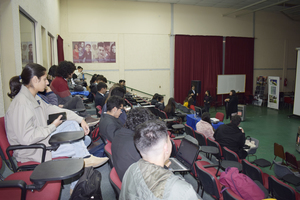 On the occasion, the students of the subject, which is taught for the first time as it is part of the renewed plan of the ULS School of Journalism, presented their documentary projects based on the construction of a dossier and audiovisual teaser of each initiative. , which showed themes from the contingency of feminist movements, responsible pet ownership, the visibility of the trans community within the University, among others.
On the occasion, the students of the subject, which is taught for the first time as it is part of the renewed plan of the ULS School of Journalism, presented their documentary projects based on the construction of a dossier and audiovisual teaser of each initiative. , which showed themes from the contingency of feminist movements, responsible pet ownership, the visibility of the trans community within the University, among others.